Raoul Maximiano Trujillo de Chauvelon
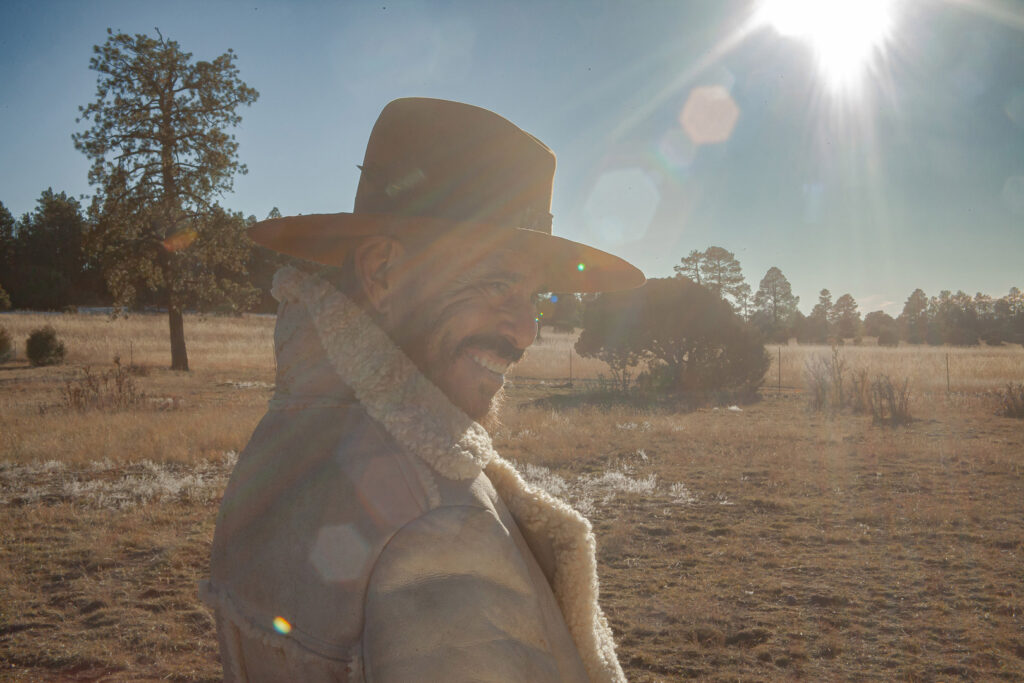
— I’ve spent a lot of time reading your impressive resume. The blood that flows in your veins is a blend of Tlaxcalan (Nahuatl), Ute, Apache, Comanche, Pueblo, French, Sephardic Jews, and Andalusian Moors. You have been a soldier, an alpine ski instructor, a dancer, an actor, a choreographer, and a co-director at the American Indian dance theater. You have trained indigenous dancers from all over the world and founded the production company TZACOL PRODUCTIONS, INC. Your work now spans more than three decades as an artist in varied disciplines and media. You’ve gone from a dancer to a choreographer, from an actor to a director, and to a screenwriter during this time. Right now, we can see you next to Jason Momoa, Martin Sensmeier, and Mainei Kinimaka in The Last Manhunt.
— Yeah, correct.
— Okay, so I assume that you have had an opportunity to work with a huge number of unique, unconventional people. Could you tell me what masculinity is? How would you define it?
— Well, I can say what it means to me, not what it means to the world. Masculinity means possessing a quality that is relegated to being a man.
— What does it mean to be a man?
— There are certain attributes with being masculine. I think of my father, who is probably the greatest example of a masculine role model, and that was somebody that was loyal, sensitive, and kind. But also, very hard-working and very willing to protect and take care of things. I think if I look at it that way, it’s very different from what I think another man might say based on his position with family and whatever else. But for me, those are qualities that I got from my father that, to me, define masculinity in the healthiest, most positive way. There were parts of his masculinity that sometimes I saw change over time. Like, when he was younger, he wasn’t really much of a communicator. He didn’t talk much. He never let you know how he felt about stuff. He was just there, and he did things. But throughout the years, I saw that change. I saw him all of a sudden opening up. I saw him willing to cry if he allowed himself to. In time, I saw him evolve as a man and as a masculine, driven man.
— Sounds like a perfect man.
— The qualities that were there from the beginning were always the good ones that I just described to you. It was an incredible sense of loyalty and caretaking for all people. I think that there’s something about being a man that denotes that you’re strong. It denotes that you’re capable. And people say to me that I’m a loyal friend and a loyal man-friend especially because I have a lot of women friends as well. And they just always say: “You’re just so kind, you’re so loyal, you’re so giving, you’re so willing to help” and all that stuff. And I just think that just goes back to my father.
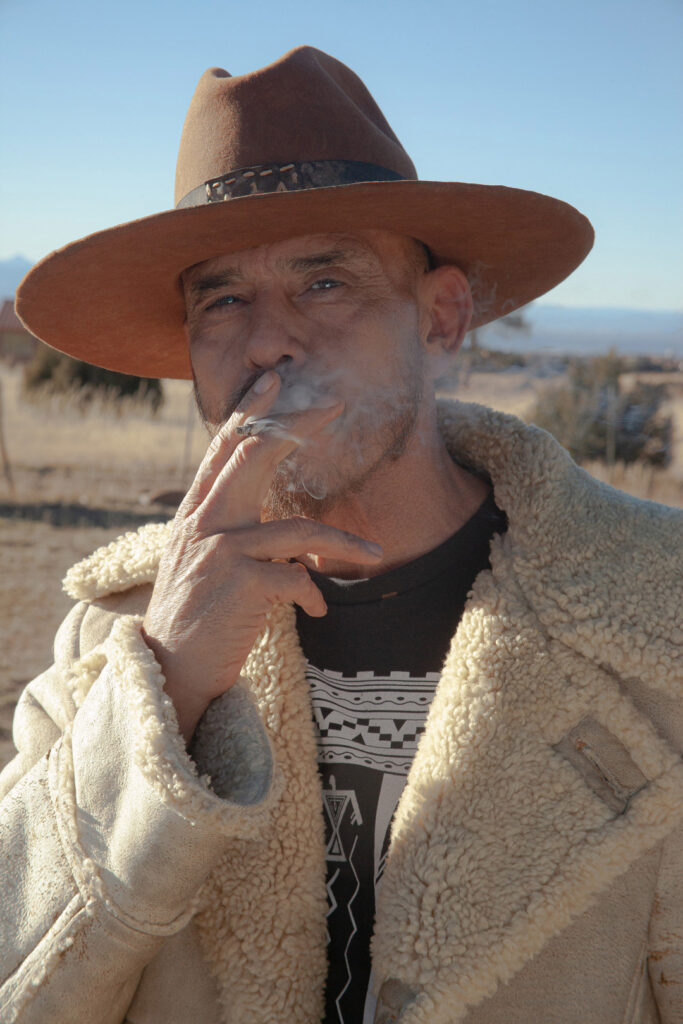 Copyright © 2023 Agnieszka Czarnecka-Wiacek. All Rights Reserved.
Copyright © 2023 Agnieszka Czarnecka-Wiacek. All Rights Reserved.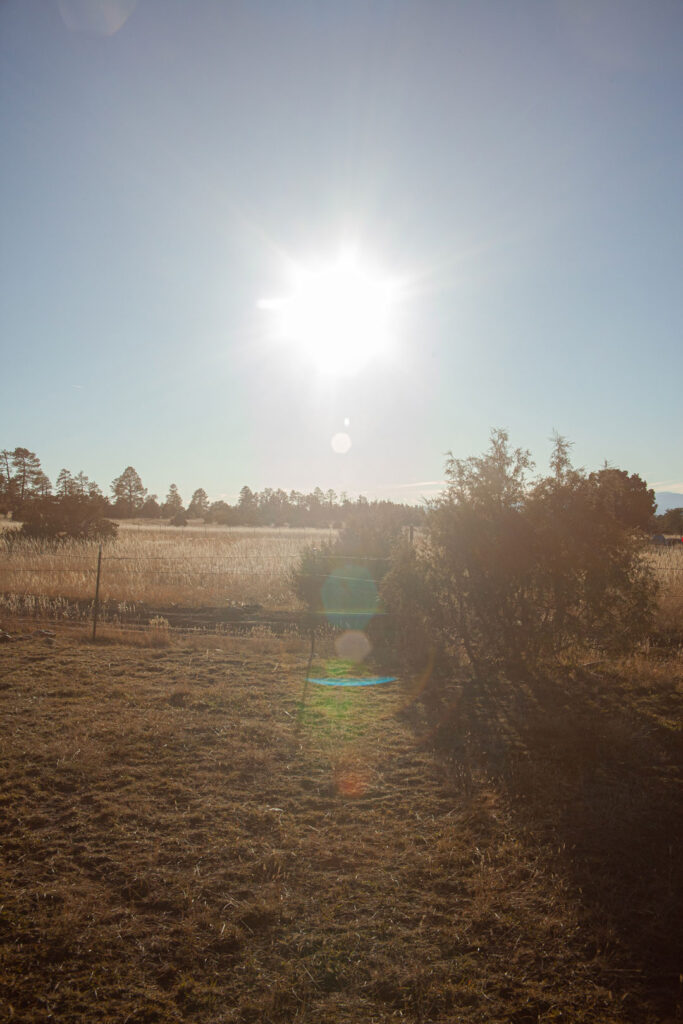 Copyright © 2023 Agnieszka Czarnecka-Wiacek. All Rights Reserved.
Copyright © 2023 Agnieszka Czarnecka-Wiacek. All Rights Reserved.
— Where is your father right now?
— Oh, he’s dead now. He would be probably 99 right now. He died when he was 94. That was about six years, seven years ago.
— I’m sorry to hear that. I guess you belong to the lucky group of people who experienced this good role model at home.
— Right, so you’re saying that basically, your average person didn’t have that. I would agree with that. I mean, I did. We had a very stable mother and father relationship. They stayed together until he died and then she has also just died.
— This is huge.
— She just died a year ago. And so, they were together, married for 76 years.
— What do you think made that relationship last so long?
— We used to talk about it quite a bit when they were both still alive. And I’d go visit them, we’d hang out and I’d be like: ‘What’s the secret, guys? Why is it still working? I mean, I see you guys, like, after that many years, this incredible warmth and kindness towards each other, but every once in a while, the little daggers would come out, too.’ But it was literally what my dad just said: ‘Because we made a commitment to each other, and that commitment stands above everything else’. He goes, ‘Nowadays, everybody wants to just get divorced once it gets difficult and they walk away. It’s just easier’. So did I, but he was just referring to everything around them, all his children.
 Copyright © 2023 Agnieszka Czarnecka-Wiacek. All Rights Reserved.
Copyright © 2023 Agnieszka Czarnecka-Wiacek. All Rights Reserved.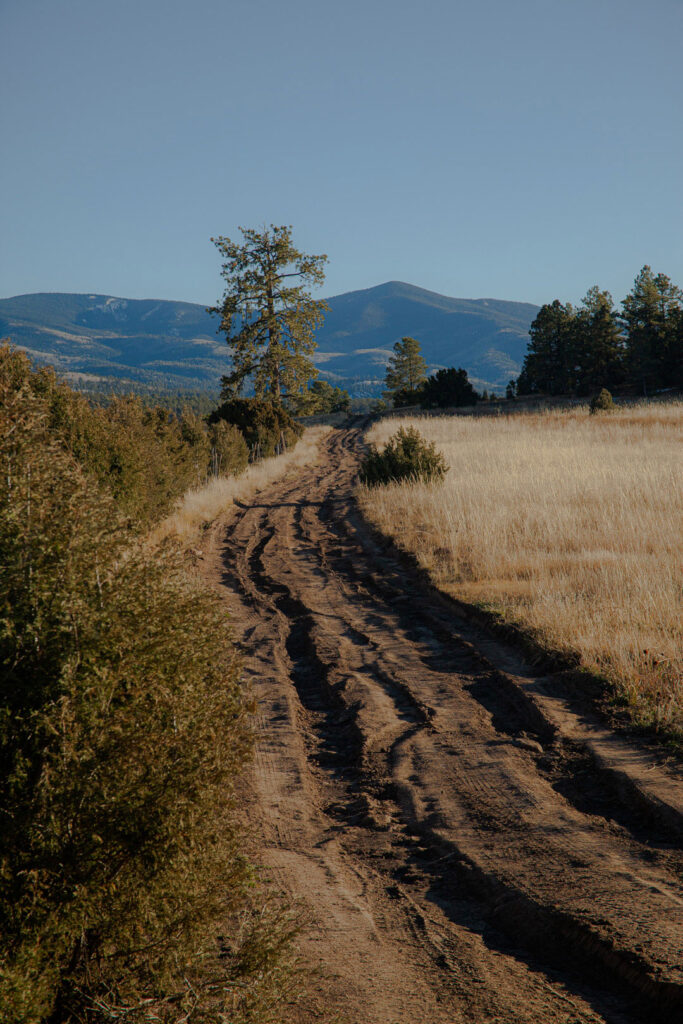 Copyright © 2023 Agnieszka Czarnecka-Wiacek. All Rights Reserved.
Copyright © 2023 Agnieszka Czarnecka-Wiacek. All Rights Reserved.
— Of course, it’s easier. Do you believe we still have the capacity to form that kind of commitment, which was represented by your father and mother?
— I think the difference is that a different time in a different age prepared people that this was what you were doing to live. You would find a good partner, someone who you can feel you can commit to completely, who will be there for you. And I think it was an easier time to make those commitments than they are today. First of all, my mom married my dad when she was 15.
— Wow. That even would be illegal today, I guess.
— That was his second marriage, and he was 22. But the point is, though, they were already adults, they knew what it meant to have to work, to have to provide, to have to do things. We’re living in a day and age now, today, where people do not want to work, they don’t want to learn anything. They think they know it all. They’ve grown up on computers, they’re all about esoteric knowledge that is not necessarily practical for life, and they’re just not equipped to be adults and go into a relationship and go into an honest commitment because they’re still children. They’ve been treated like children. I mean, I know 30-year-olds who are still living at home. By the time I was 18, my dad was like: ‘You know, this is the year, right? This is the year you go bye, bye’. And I was like ‘Yeah, dad, I get it’. And I came through every once in a while, and they were always there for me. But the bottom line is, it’s a different time. And I think people can’t even make commitments to themselves that they would eat dinner at 8 PM, much less make a commitment to somebody else to stay with for the rest of their life.
— Why do you think that is?
— I think a lot of the problem is the pressure put on kids when they’re still in high school. Find that sweetheart and stay with that sweetheart, and that’s the one you take to the prom, and that’s the one you get married to. It worked 100 years ago, but it doesn’t work today. Now people need to first find out who they are, and what they are. But we could talk about all the problems of why people can’t find that. Everyone’s forced right now to educate themselves in a certain way. That’s one thing I did remember about Europe, because I had a German girlfriend. In Germany, it was very different. By the time you had reached a certain level of, like, 13, 14, you would be put in a training program that was suited to what you wanted to learn. So, if you weren’t interested in math’s but interested in languages you wouldn’t be forced to do it. You’d go to be a mechanic or learn to be a teacher or nurse. They broke you down already to what you were and that’s very different here.
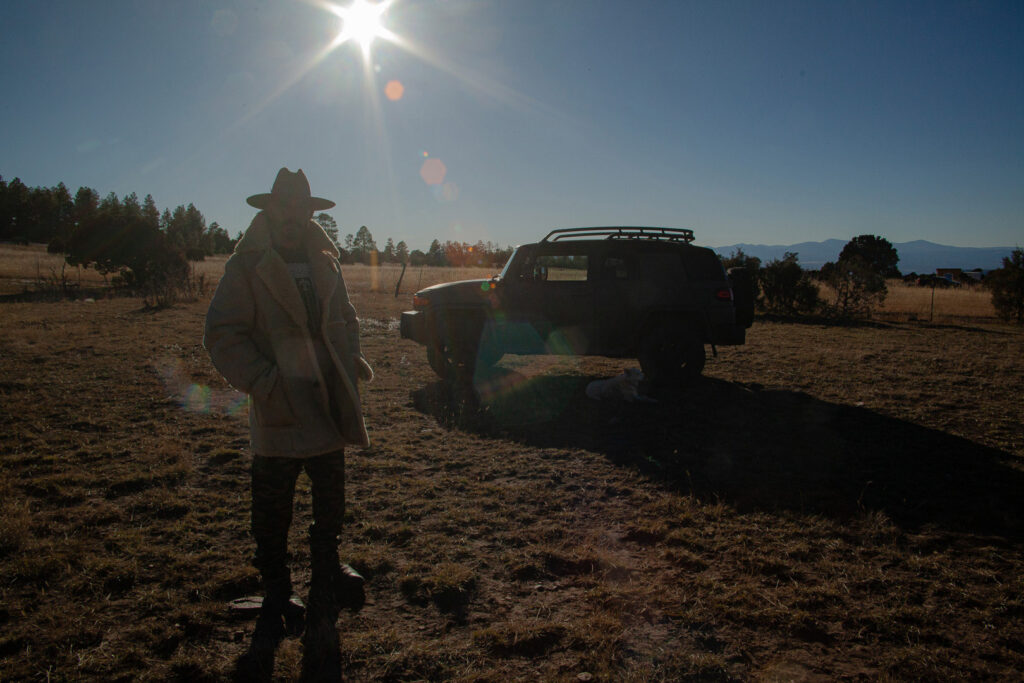 Copyright © 2023 Agnieszka Czarnecka-Wiacek. All Rights Reserved.
Copyright © 2023 Agnieszka Czarnecka-Wiacek. All Rights Reserved.
— Do you think that early educational classification does not support the development of healthy masculinity?
— Everybody’s forced to just learn a certain thing about time. It’s a very limited education where you don’t even learn proper history, so then by the time you’re 18, you’ve already been educated up the wazoo with shit that doesn’t even matter anyway. And now you’re being asked to go yet to another institution of learning or to go into the military or to be a criminal and then end up in prison. You have three institutions in America, basically, for higher learning, and those are your choices. So that’s not really much of a choice when you’re not a criminal, but you’re not an academic either, or you’re not necessarily a patriotic military man. So, what do you do then? In my case, I always knew the arts were always the most important thing because they’ll free the mind. It allows you to see the world differently. Travel is important to me. So how do you navigate that when you’re 18 years old in this country? I think any country has its own set of restrictions and limitations. But how do you navigate that path for yourself when you’re already being told what to do and how to do it and have the time frame that you need to do it?
And then when do you make the choice to just say ‘You know what, fuck that, I’m going to do me, I’m going to be a rebel and just do me and figure that out’? And ultimately that’s what I think someone like myself ends up doing. You end up following your heart’s desires about what you want to do.
— But you see, this is perhaps the moment when this energy can find a valve in very different directions. You were lucky to grow up in a house with a great role model and your rebellious temperament pushed you towards practicing art. Not everyone, at this stage, is so lucky.
When I’m listening to you, it sounds like really you have a very deep and positive sense of commitment. I could even say I wish, for instance, for all men to be committed like that. That’s the starting point.
What is crucial for men as a base for masculinity might work totally opposite with women, as they very often represent a disordered commitment. They commit too much, to the wrong places, driven by the ancient instinct of feeding and caring, they waste their energy, instead of navigating it.
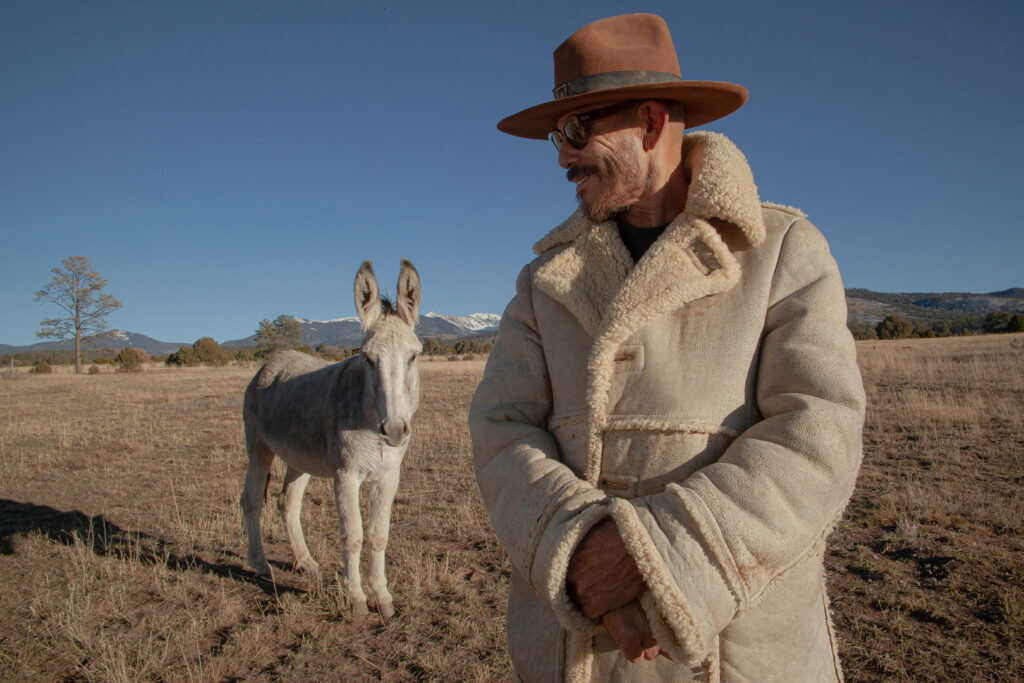 Copyright © 2023 Agnieszka Czarnecka-Wiacek. All Rights Reserved.
Copyright © 2023 Agnieszka Czarnecka-Wiacek. All Rights Reserved.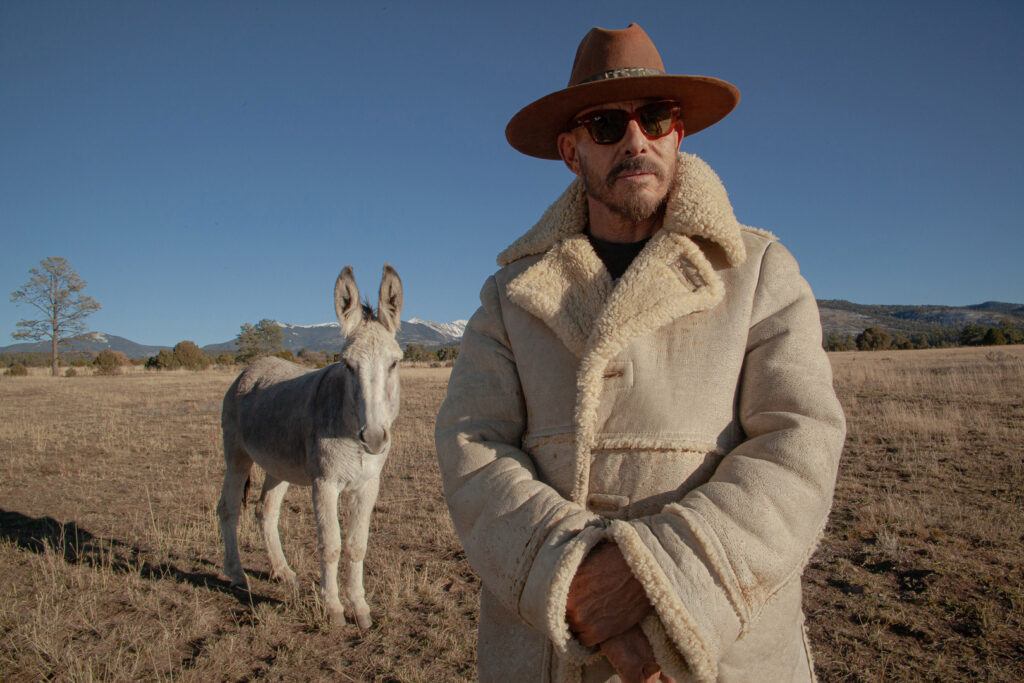 Copyright © 2023 Agnieszka Czarnecka-Wiacek. All Rights Reserved.
Copyright © 2023 Agnieszka Czarnecka-Wiacek. All Rights Reserved.
— They don’t really. Do you think women do that more than men do?
— I think they do that more than men, but they do it quietly and they don’t show it. Of course, everyone is different, has different needs and perspectives. But I think, looking at my culture, the culture I come from, that we’ve been taught from the young age as girls that as young women we have to be committed to the things we do. We have to innovate to serve the system we are responsible for, like a family relationship. And this sometimes drives us to deeply unpleasant situations. For instance, my marriage lasted twelve years, even though I was sure I wanted to end it after two. I stuck with that relationship for longer because I thought it was my responsibility.
— That’s the wrong choice really. But you hung out there.
— Because I made a choice to work on it instead of leaving.
I worked on my marriage for ten years because I’ve been taught that as a woman in my culture, I have to take care of everyone, and I have to be responsible. And I’m not complaining because actually, I have grown a lot during this time, going through all those challenges. But how it is here in America? Can you say that we women could get into this type of commitment here, in this country?
— No. First of all, there’s no way that I could even begin to generalize between men and women here in America versus women in Poland and UK. Wherever. It’s not even about culture anymore now. And ultimately, it’s more about the frame of mind that one needs to be in to engage with another human being. Or with a project, or with an animal. It’s like you’re either in or you’re not. So, I don’t think it has anything to do with cultural or national boundaries at this point. And I definitely would not generalize it.
— But would you need a commitment from a woman?
— Now, if I’m talking about being in a relationship, I want a commitment with someone who will also be willing to commit to be honest, truthful giving, and receiving. It’s just like being in it with no bullshit. It is very simple. But how many people can actually do that? I mean, I’ve just spent two days with a really good friend I have known for years. There are possibilities that there might be something romantic, there’s exploration. But, you know, there are two adults, but also children and grandchildren in the background. But at the same time, at the heart of human nature is vulnerability. And how vulnerable is that man going to be in that relationship or that woman in that relationship? How vulnerable can they truly allow themselves to be in being honest, in exposing parts of themselves that maybe you have some shame about? So, it’s a very convoluted, very complicated issue.
 Copyright © 2023 Agnieszka Czarnecka-Wiacek. All Rights Reserved.
Copyright © 2023 Agnieszka Czarnecka-Wiacek. All Rights Reserved.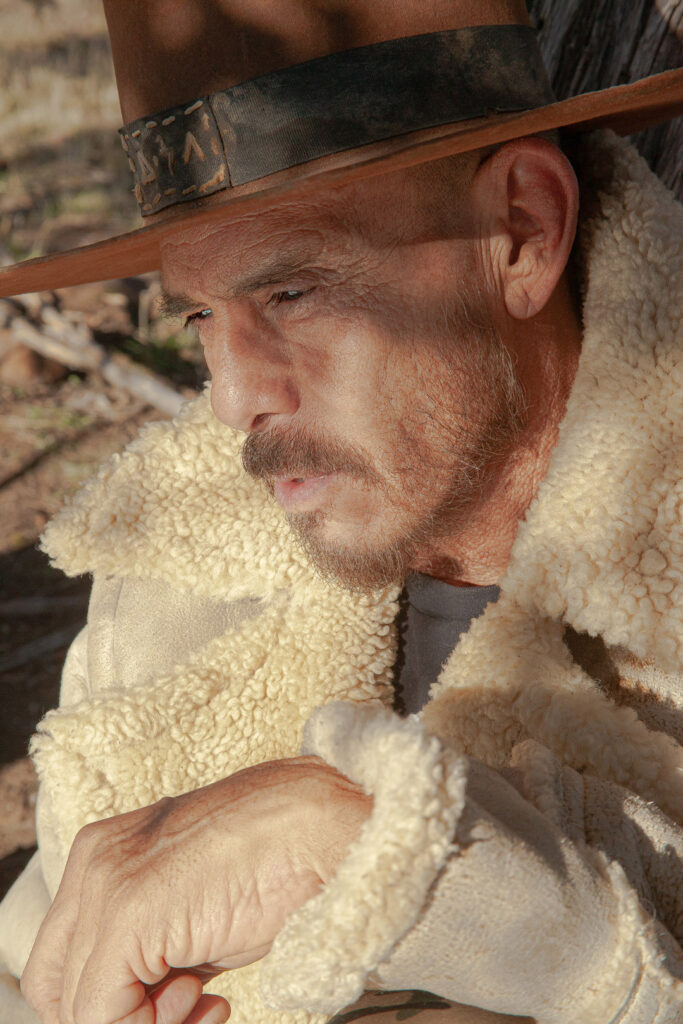 Copyright © 2023 Agnieszka Czarnecka-Wiacek. All Rights Reserved.
Copyright © 2023 Agnieszka Czarnecka-Wiacek. All Rights Reserved.
— Does this apply to everyday life?
— I think it’s like going out on a date. You go out on a date that you’ve got on the Internet, or somebody sets you up and says, ’oh, you guys are great together, you guys should meet up’ and all that.
So, you talk, and you hang out and you have fun, and you laugh, and you talk about things and realize, all right, we do have a lot in common. But then at what point does the conversation have to be about the fact that I’m really way more about the organic nature of human beings? But again, it’s one of the reasons why I’m alone up here living up in the mountains alone – because there’s just not a lot of that going around. A lot of people are not clear and are not committed fully to their lives. They’re still dealing with, let’s just say, alcohol addiction, drug addiction, addiction to sex, or addiction to too much shopping. Everyone has issues of every kind and they’re all very specific to each person. So, at what point does it all sort of evolve organically and naturally that everyone just feels comfortable, to be honest, and vulnerable? Or does it have to be constantly talked about? Personally, I’m not interested in a relationship where I’m going to spend half the time talking about me.
— Why not? I’ve heard that communication is the foundation of a relationship.
Have you heard about that?
— That’s like fucking therapy! I don’t need that. I want spontaneity. Because you spend enough time with animals, especially horses, dogs, and cats, you’re dealing with very instinctive creatures that just know how to be and they define their societies and their little packs and their herds within that pecking order. And I think humans have it as well. But you have to be instinctive. You can’t do it if you have no instincts, and you don’t have a clue about what’s going on with yourself. That is my observation. I see it all the time. I see it with people that I hang out with on a regular basis, whether it’s other actors that I’m working with on a project and I’m hanging out with them after the show or off time. It’s so easy to see people who are just in it, in the flow, completely happy with themselves. And there might be people that other people might look at and go “oh, yeah, they’re a little superficial”. Well, again, people are quick to judge. But for me, it’s about energy. I’m thinking of one particular man right now who I work with. He’s so easy to be with as a human being and all he does is love his family, love his dogs, love his work, love people, love charity work.
It’s like this man just seems like an awesome man.
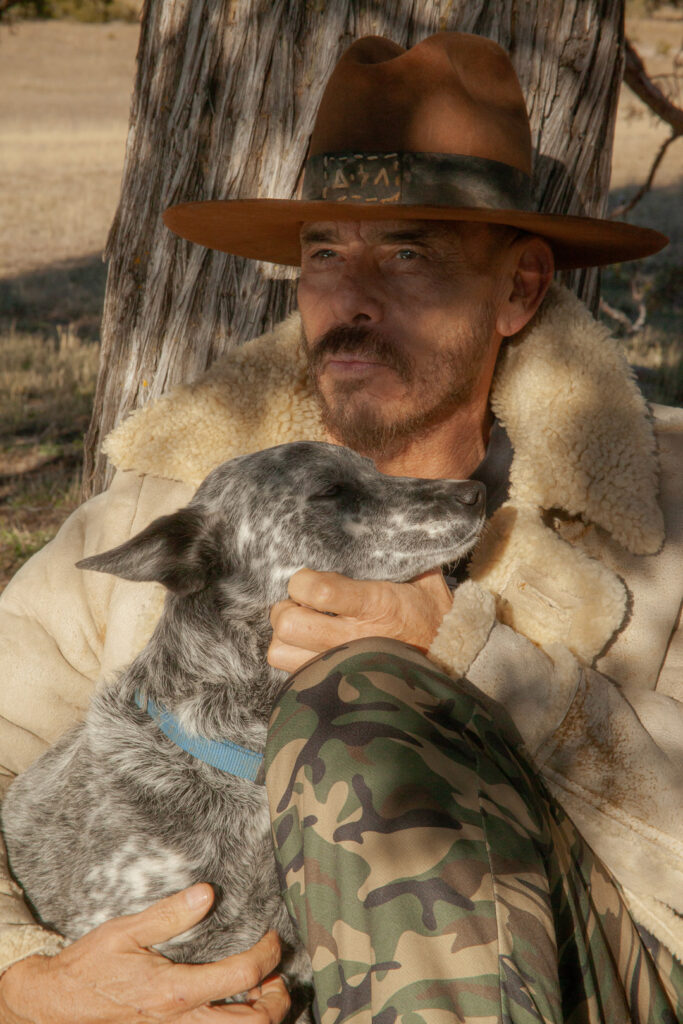 Copyright © 2023 Agnieszka Czarnecka-Wiacek. All Rights Reserved.
Copyright © 2023 Agnieszka Czarnecka-Wiacek. All Rights Reserved.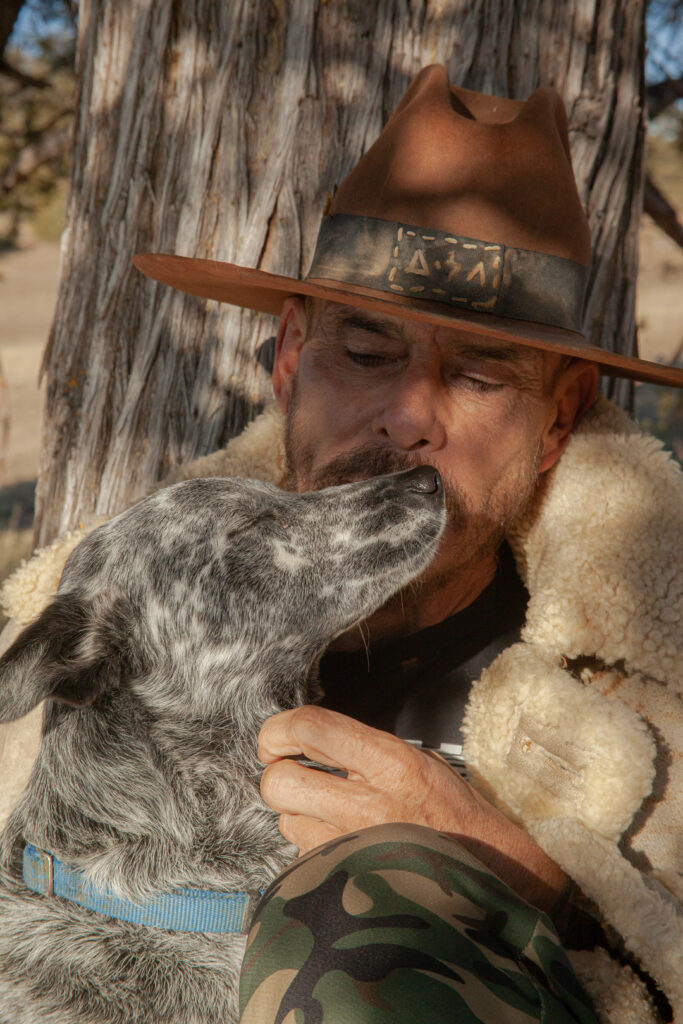 Copyright © 2023 Agnieszka Czarnecka-Wiacek. All Rights Reserved.
Copyright © 2023 Agnieszka Czarnecka-Wiacek. All Rights Reserved.
— Don’t you think he’s just being vulnerable?
— I think he’s incredibly vulnerable. And I’ve spent time with him now where everybody loves him. Everybody can talk to him because he can talk to everybody. And, you know, I look at that and I go, oh, good for him because I can’t sit and go golfing with somebody all day long and talk a bunch of shit and it’s like there’s just no help. There’s no way, I shoot myself first, but I’m not going to put him down for it. So, I don’t know. There’s room for less judgment and fewer opinions in life about what other people do. But the bottom line, I think, is you coming from the most authentic, honest place that you can come from in your relationships with people, whether they’re casual or whether they are possibly deeply loved ones? Are you able to do that? And is the other person willing to do that? Are you able to do that?
— Sounds like, “Are you brave enough to do that”?
— Am I brave enough?
— Yeah. I mean, that’s how it sounds. For me.
 Copyright © 2023 Agnieszka Czarnecka-Wiacek. All Rights Reserved.
Copyright © 2023 Agnieszka Czarnecka-Wiacek. All Rights Reserved.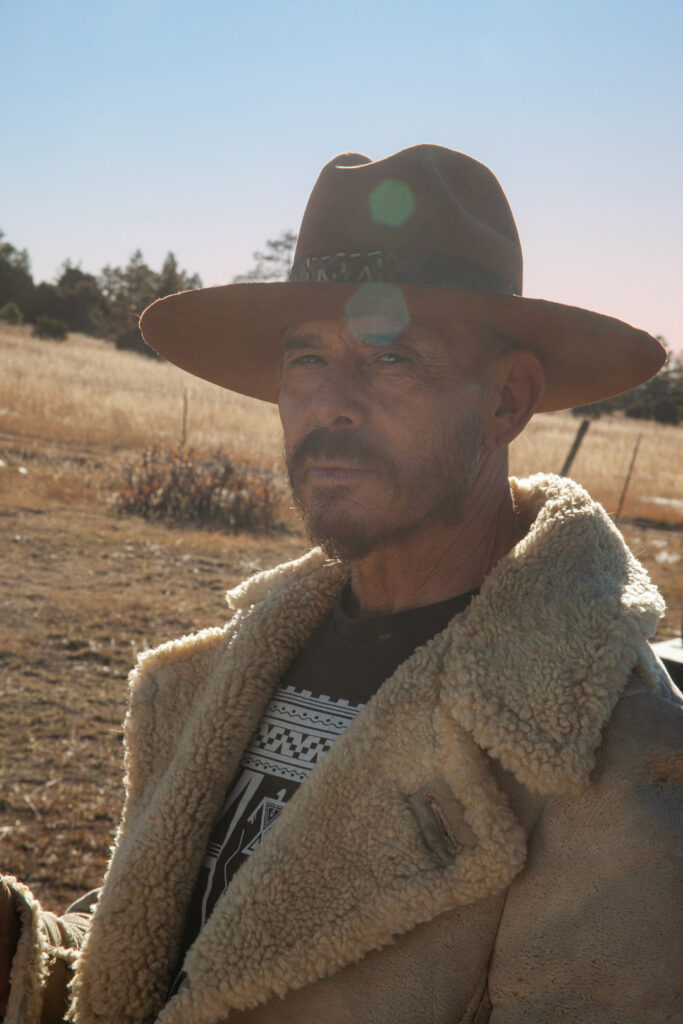 Copyright © 2023 Agnieszka Czarnecka-Wiacek. All Rights Reserved.
Copyright © 2023 Agnieszka Czarnecka-Wiacek. All Rights Reserved.
— Yeah. Are you brave enough to do it? Are you really willing to be brave and bring all those skeletons out of the closet, like, right away and just say, look, just so you know? And then trust that they take it, or they leave it. And are they willing to do the same? Because there are a lot of people who are willing to listen and show you that “yes, ma’am, yes, sir” thing. But are they willing to do it?
We just live in a time now where there are so many definitions that need to be established about certain words: commitment, illusion, reality, truth, and authenticity. But again, you don’t want to spend your life talking about it all the time either, because then it just seems like it’s actually a very feminine thing. Is it? To talk about? Yeah, women love to talk.
— Yeah, of course, because that’s a different kind of energy. It’s like a cloud, which is pink, and glitter and smells like vanilla.
And men are more focus oriented. That is the energy of Aries, by the way. This is like a new beginning. To go forward. Of course, that’s just one kind of different types of energy. They need constant access to the kind of storage of energy, in order to be able to use it any time they must go through obstacles. Because this is what this culture expects from them.
— Yeah, like I said, I try to take myself out of the culture, especially because you and I, we come from completely different cultures, so there’s not going to be necessarily any starting point there that you can establish.
You got to just let that unfold and become what it is. For instance, the ones I’m talking about more are when you’re with someone and something you might say or do may trigger an immediate response. And that immediate response might be “you know what? Don’t use that tone on me, because I have had that tone used on me my whole life by men. It’s not going to work.”
And then you realize, wow, what tone did I just use? And why was it perceived that way? And it becomes very confusing because you’re like, okay, well, now this is subjectivity. And then you’re dealing with somebody who has a very clear agenda: “I’m healing. I’m no longer going to be a victim. I’m no longer going to be a stomping place for men because there’s obviously been a history of abuse and whatever else.” So, then you’re kind of like the part of you that’s higher, more understanding, more perceiving, more empathetic.
Life becomes a series of that kind of moments, I think, all the time. I think probably today is the hardest time in all of time for people to really start and explore and be in relationships because we’re just so fucked with everything we’ve witnessed and seen historically for thousands of years. Between classes and royalties, all that, we’ve seen the gambit of humanity work its worst ways as a spectacle for us to witness. Then you’ve got on top of that the fact that we’ve got social media, entertainment, the world media at large that paints a whole picture to us about what it is to be you.
 Copyright © 2023 Agnieszka Czarnecka-Wiacek. All Rights Reserved.
Copyright © 2023 Agnieszka Czarnecka-Wiacek. All Rights Reserved.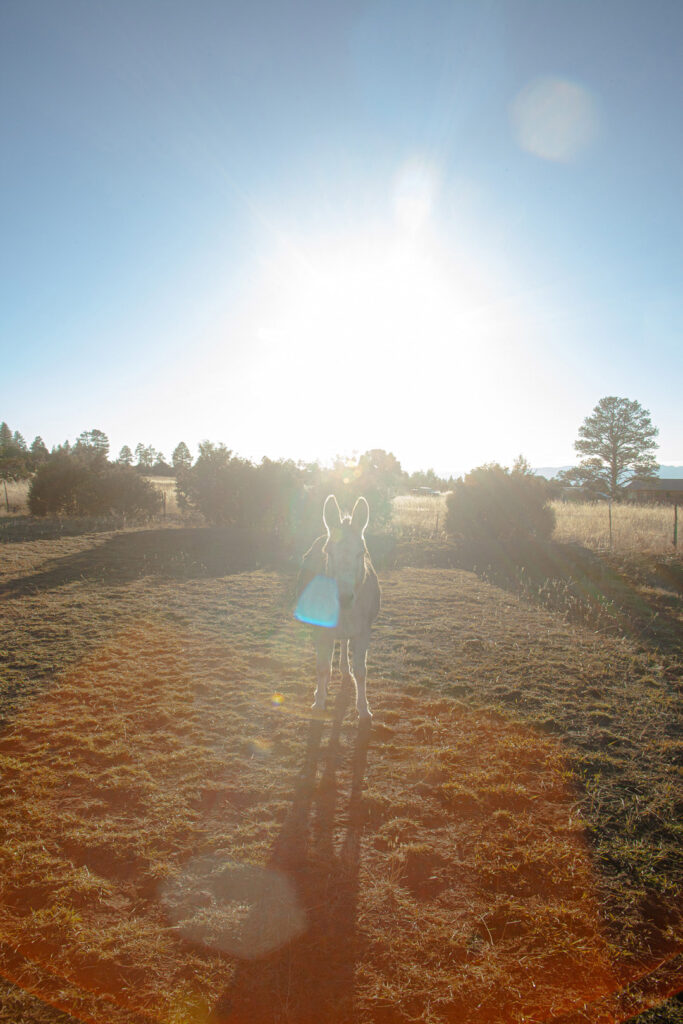 Copyright © 2023 Agnieszka Czarnecka-Wiacek. All Rights Reserved.
Copyright © 2023 Agnieszka Czarnecka-Wiacek. All Rights Reserved.
— How do you deal with it?
— It’s just like, it’s got to be the worst possible time, and especially for an old fucker like me at this point now where it’s like ‘Sorry, guys, I’m just not willing to work this hard anymore’. It should be easier. I got this far in my life because it got easier because I started bucking the system less or being more resistant or being more opinionated or too opinionated and less judgmental now. So, it’s like, I don’t know.
The self-journey for one is so different from another. But how do those two find alignment and somehow still stay true to themselves? It’s like two boats at sea traveling parallel but still being able to be on this journey together.
And I’m still looking for all the possibilities and all the answers that can be revealed to me in moments. But I don’t want someone telling me what it is. As if I would not want to be telling people „Well, you need to be doing this”. No, those days are over in those relationships where you feel like you see them so clearly and just this little extra boost will help you make that breakthrough you need.
Because we’re always on that verge we feel like we need to fix people, or we need to fix that. What does it look like when you have two people come together and especially in this day and age now, my God, navigating the territory of the binary and the non-binary because it’s not just about sex anymore now? Well, it’s not even about sexuality anymore now it’s about the binary system is about the binary world at large.
— Finally, someone also started to see that the world is not so simple. It’s not divided between men and women.
— Or black and white. Yeah, so many possibilities.
— But it looks like so many options, and then it gets more and more difficult because you’ve said that you are less judgmental right now. What made you like that? What happened?
— Two things. First of all, I found myself being very judgmental early on about things only because my brain said ‘Oh, well, that’s just stupid’. Why would you do that? And not taking into consideration what that person might have been going through to arrive at that particular point. You just judge it quickly based on rational thinking and what you know. And that can be harsh and last for however long it lasts. And then you reach a certain point in time where suddenly, you’re like ‘Okay, I’m going to be nonjudgmental now. I’m just going to let people be, do their thing, whatever!’. Not judge it until you get to the point where you’re like, OK, now my life is getting impacted by it because I’m making now bad decisions by letting certain people into my life who maybe because I wasn’t judging them, I was creating a free for all with no structure. So, I think going from one extreme to the other allowed me to go from one end of the binary to the other end of the binary to realize that somewhere in between there, there is just so much room.
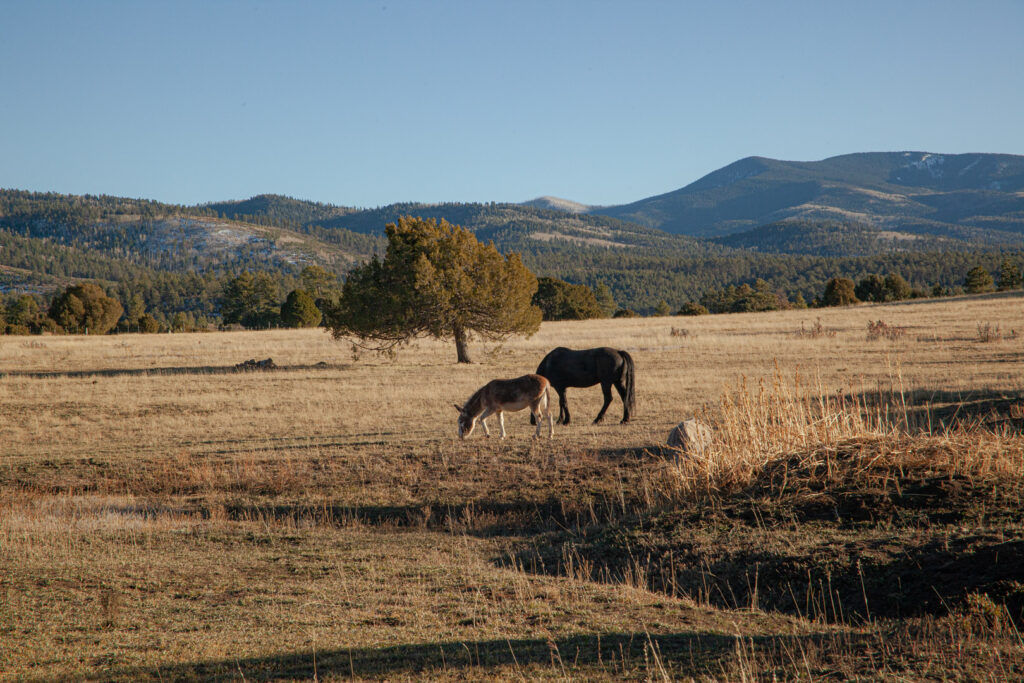 Copyright © 2023 Agnieszka Czarnecka-Wiacek. All Rights Reserved.
Copyright © 2023 Agnieszka Czarnecka-Wiacek. All Rights Reserved.
— Perhaps reaching the place where we are authentic is simply difficult and expensive.
— More and more, I believe now that being authentic and true to oneself means that the ever-present scrutiny of self is ever present, but it’s there to just be witnessed. It is without judgment, but to just recognize and go, okay, I can’t just keep going for the ‘just go for it’ attitude and expect it’s all going to be fine. Especially if there are red flags, as people call them, coming up. So, it just means, I think, really being able to be that. But again, it’s putting it all on self, it’s not putting it on other people. I think it’s unfair to expect that other people should have different behavior or have different reactions just because you think they should. Because you can’t possibly know what’s in their head or in their feelings at that moment.
— I think it’s useless to try to even begin to think that you might understand what somebody else is going through or why they say what they say.
— That has nothing to do with you. I don’t think it’s any of your business. But what is your business is staying true to yourself. And if there’s something that comes up at that moment, you can just say, ‘You know what, I didn’t quite understand that. Can you maybe just explain it? Because I’m not following.’ Clear it up right away. No, you know what I mean? But to just go into it and just pretend to ignore red flags and ignore certain behaviors because in the bigger picture, there’s more good going on than bad. And I think that’s more of a danger in this day and age than anything else. We’re so accustomed to settling for what is acceptable. What’s doable what’s bearable? And we’re able to put oh, yeah, well, if it gets too heavy, I’ll just go off for a walk or whatever else. Or you write communication off as maybe we’re just not communicating right now. We just take a break, whatever. As I say, I don’t have the answers. All I know is I have my answer, which is to stay open, stay positive, and stay nonjudgmental. Listen as much as you can, but also be true to your heart and your instincts.
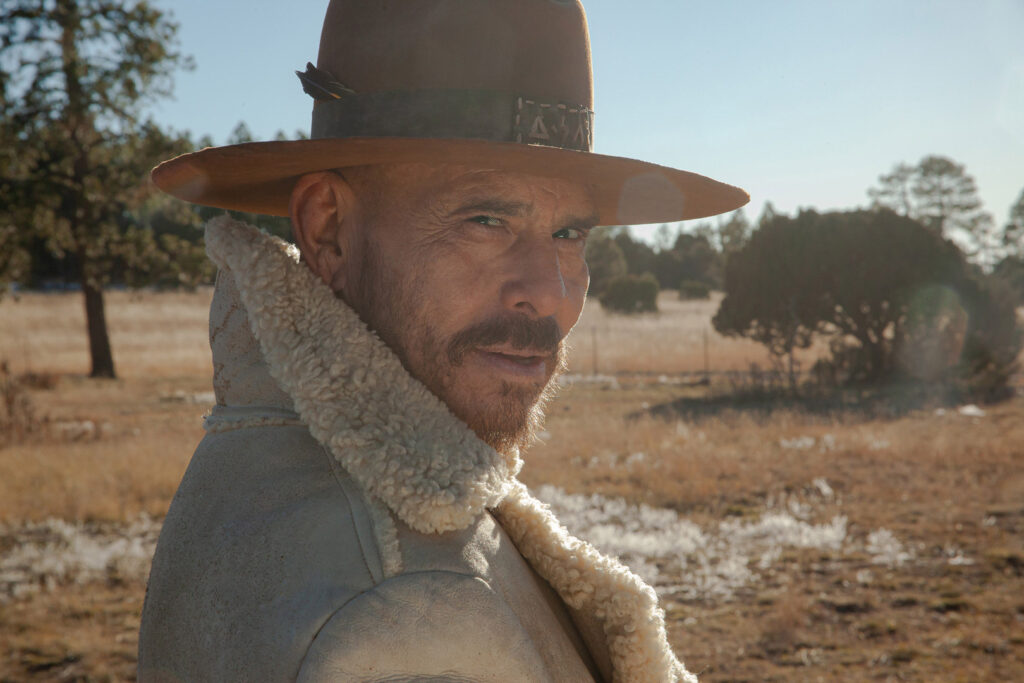 Copyright © 2023 Agnieszka Czarnecka-Wiacek. All Rights Reserved.
Copyright © 2023 Agnieszka Czarnecka-Wiacek. All Rights Reserved.
— It sounds a bit like a self-preservation instinct.
— Because if you are aware enough, your body tells you what’s up. Your body tells you when something’s not feeling right. You’re going about to eat something, and your gut goes, ‘Maybe not’, so you don’t. So, I think it’s the same. But again, back to your original question, though, is like we live in a world where masculinity meant one thing one day 100 years ago, femininity meant another thing, and now we’re at a place 100 years later, which is not really a lot of time when you think about it over the course of human history. But enough has changed now where now we’re talking about nonbinary systems. You know, I’m talking to someone like you, and you tell me, no, don’t refer to me as she or her as a woman. And you’re like, okay, going to be kind of hard to do because that’s what I see. But at the same time, we’re living in that world right now where people just say things like that.
— It’s amazing.
— And it really does come from, I think, disenfranchised cultures. The gay, bisexual, and transgender community has been fighting for identity and rights, and equality for so long now. I mean, not in the course of history time, but just legally in the last, let’s just say, 50 years. As my friend explained to me once – she basically said, ‘I was in the military, and yes, I very much identify with myself being a young woman, an Asian woman, and good-looking and all that’. She goes, ‘But it gets really tiring to go out in the world, and every man out there just wants to see you as a piece of ass possibility. And if you say anything too intelligent or stand up yourself, “Shut the fuck up, bitch”’.
And then it became crystal clear (to me). It’s like, ‘oh, shit!’.
— Well, it’s not nice to be seen as a piece of meat.
— Well, then that makes sense because if we’re only then being looked at sexually or objectively as sexual objects. And not as human beings. But really what it comes down to, I think now, which I’m understanding, is just breaking down the whole binary system of sexuality, of identity, of who we are as human beings, who we are as human beings living in a living world. No longer always just the cities, but again, living in a city is a very different reality than living out here in the country, taking care of your own garbage and everything else. So, we live in a multi-dimensional reality now that is completely, and I don’t want to use the word nonbinary because all that means is that you’re just not allowed to live within the confines of a binary identity in all things. So, I’m not going to use the word non-binary, but it’s how you choose now to live in a world where basically it’s just everything is not black and white, yet it seems the most basic thing when it comes to relationships.
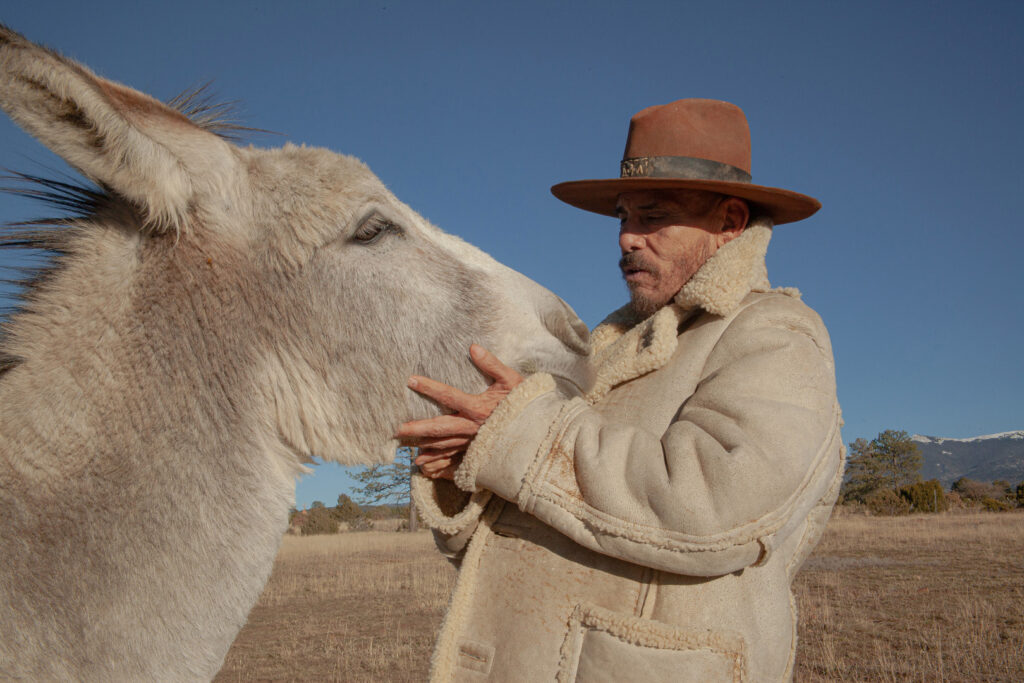 Copyright © 2023 Agnieszka Czarnecka-Wiacek. All Rights Reserved.
Copyright © 2023 Agnieszka Czarnecka-Wiacek. All Rights Reserved.
And let’s forget about all that other binary shit of masculinity, femininity, and the sacred feminine. I just hate to use the word sacred masculine because it’s kind of a misnomer these days. What is that? Toxic masculinity because of so much toxic masculinity out there? No, but there’s a lot of toxic masculinity out there.
— Actually, originally masculinity for me, it’s some kind of quality and a set of qualities, or attributes which are about something special. This is something special. And I believe that each of us, we have a little bigger or smaller percentage of this. It doesn’t matter if I’m a woman, a man, or another being. It doesn’t really matter. For me, masculinity is definitely some kind of a really powerful set of attributes.
— I have just realized that this is such a negative picture of masculinity that exists in a world because of the patriarchal system. It produces aggression instead of strength, and control instead of taking care of someone.
— Is feminine picture positive?
— I think femininity and the sacred feminine have also taken a toll and become just as toxic (as patriarchy) can be for men. There are certain native nations that are matrilineal. Their whole governance, their whole way is with women at the top, it’s a whole different system. And you won’t see the flaws of masculinity or femininity the way that you do under the patriarchy. The patriarchy is designed to tell you how to do things. And with men, it’s about doing that, being the industrialists going out there and conquering and tearing down all of the forests. It’s all about that. That’s all the patriarchy is because the patriarchy is just all about control and conquering that which is lesser, whereas the matrilineal is more sacred and feminine based. And if there were women in power, they would not be doing what they are, unless, of course, they’re Hillary Clinton.
— So why aren’t they in power?
— Women are treated badly and have been treated badly for so long because that same patriarchy treats the Earth the same way, it treats everything in nature the same way, without regard, without respect, and without equality. So that is a huge problem. As long as we have patriarchal control, women are not going to fully understand their whole power and their whole sacredness, and their whole mythic identity.
I like to use the term mythic when I refer to beings and come to a clearer understanding and more honest understanding of who we are as men and women. And you find that in mythologies through gods and goddesses and deities. And in that realm, you see it because it highlights and it gives credence to all those attributes that come with being Venus, the goddess of love, or Mars, the god of war.
We have these sorts of mythic identities that have been put forth before us long before the patriarchy came into place.
 Copyright © 2023 Agnieszka Czarnecka-Wiacek. All Rights Reserved.
Copyright © 2023 Agnieszka Czarnecka-Wiacek. All Rights Reserved. Copyright © 2023 Agnieszka Czarnecka-Wiacek. All Rights Reserved.
Copyright © 2023 Agnieszka Czarnecka-Wiacek. All Rights Reserved.
— The most painful for me is when I see women who betrayed their femininity absolutely. In order to mean something or to do something. And of course, for centuries the only thing we could somehow get anywhere was through sex or through money and power. The art of seduction (was crucial) because if you were a woman and you couldn’t seduce then oh, sorry, you were done.
— To the nunnery, you go.
— Yes. For centuries it was kind of a really hardcore situation while right now we have access to everything. But it’s painful when I see that women betray their femininity by just shifting to male energy.
— I agree, but they still miss Masculinity.
— Of course, they do! We are at the beginning of a new paradigm. We just must find out what you say about the most important thing: that we all are human beings. We should start with this and then we wouldn’t have to switch roles in order to build something or invent something or shape this world somehow. I really was surprised by the number of women I talked to even before I started (this project) (who would say that they prefer working and communicating with men). Just an example: there’s this woman, she’s a lawyer, she runs her own firm, and she says, ‘I don’t understand what all these women talk about, it is difficult to deal with them. With men it’s so easy: I have twelve guys at the table, I sit down with them and I’m like, all right guys, we got this and that, blah, blah, blah. And I’m done.’
— She’s an Aga as well.
— Yeah.
— It’s funny.
You see, you can communicate.
— Yes, but I don’t want to become a man in order to communicate with the other sex. I want to stay who I am to communicate, not switch to masculine energy.
— Correct.
Well, I think women that go for that kind of power are going to have to use their masculine force because that’s how that comes about. I mean, that’s why I say when I think of politicians and I’m thinking of Hillary Clinton and what’s her name now? (Kamala Harris?) Vice presidents are not women that I say are connected to their sacred femininity. I mean, I’m just sorry and maybe I’m going to get shot on for that. But to me, it’s like they don’t represent me, I mean, Ocasio-Cortez in terms of a politician, embraces more of what I see as a sacred feminine, but yet she’s a go-getter. She’s not trying to be a man, she’s not trying to be masculine, but she’s using her force as a woman, which, let’s face it, is a very powerful force. You guys give birth, for God’s sake.
— It comes down to the question, what actually makes women powerful?
— Again, I think what makes men and women both powerful is if they are true to their nature, and who they are. But staying true to their nature, not trying to be anything else or somebody else, because that’s going to be the door to staying true from the very beginning. And that’s why I say as an artist, someone who spent his whole life saying no to that world, it’s like, no, I’m not going to become a security guard. I’m not going to become a lifer in the military. I’m not going to go for those jobs because I’m not interested in those jobs. I’m just going to turn it off anyway. I thought I had a Do Not Disturb on.
— Good one! I’m taking these options for myself too – I feel it will be extremely useful in my future!
Thank you, Raoul, it was great to talk with you.
— Thanks.
Raoul Maximiano Trujillo de Chauvelon – American actor, dancer, choreographer, and theater director. Former soloist of the Alwin Nikolais dance theater, choreographer, and one of the directors of the American Indian Dance Theater – a contemporary Indian dance theater. Host of many TV shows and dance shows.